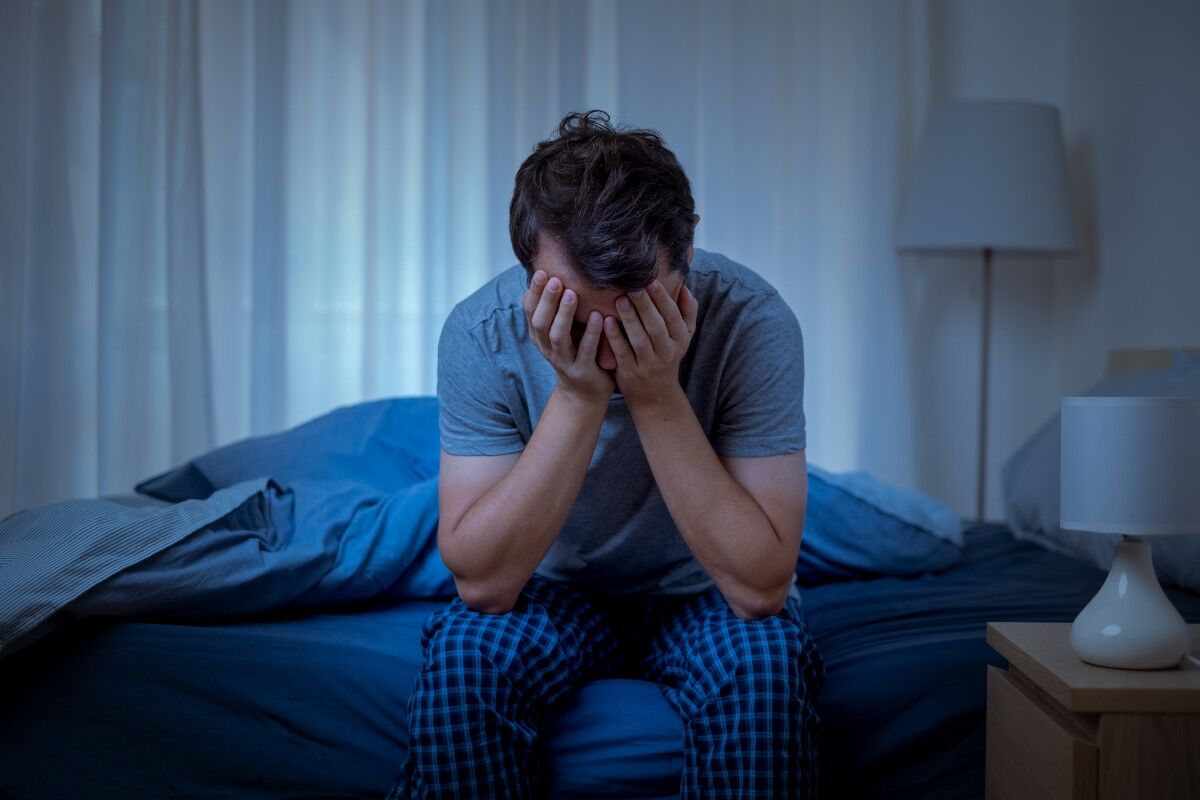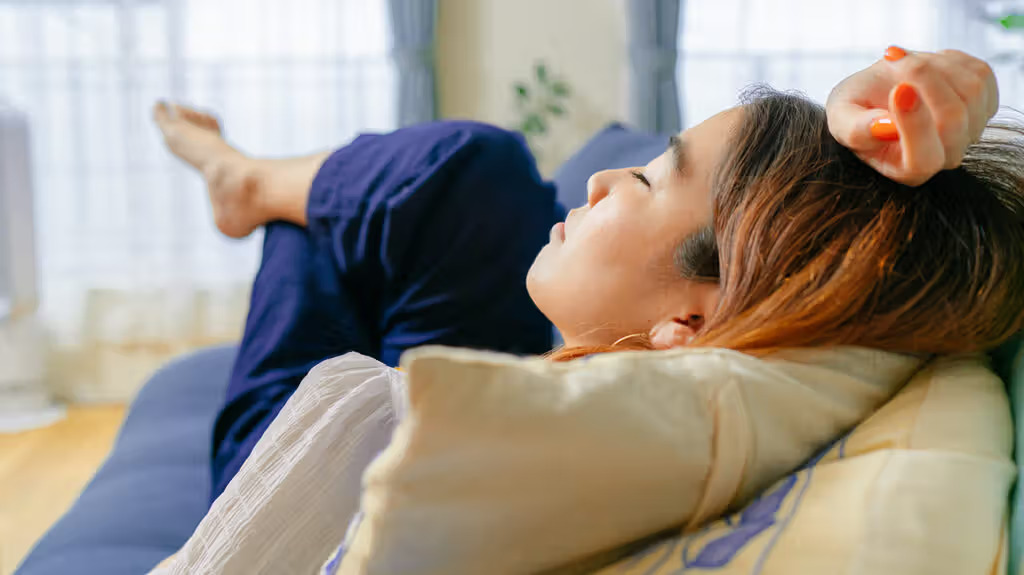
Restorative Sleep Medicine
Healthy sleep means a more healthy YOU. Your sleep quality affects your immune system, stress levels, risk for chronic disease, memory, performance, and much more. At Restorative Sleep Medicine, we will help keep you on the path to better, more restorative sleep.
Healthy sleep habits are important, but they are not a solution for a sleep disorder. If left untreated, sleep disorders have serious health consequences. Not getting healthy sleep contributes to a plethora of physical ailments, including cardiovascular disease, high blood pressure, weight gain, type 2 diabetes, and impaired cognitive function. Poor sleep also impacts mental health and well-being and can cause moodiness, irritability, and strain on personal and professional relationships.
See below for a list of common sleep disorders that we treat. At Restorative Sleep Medicine we treat people of all ages, from 0-99+, and offer both in-office and virtual visits. Located in Charlottesville, VA, our service area encompasses the entire Commonwealth of Virginia.
Obstructive sleep apnea is a serious condition that could prove to be fatal or can worsen...
It is human nature to have a poor night of sleep from time to time. When occasional trouble sleeping persists....
Hypersomnia in simplest terms means that a person has too much sleepiness during the hours...
Restorative Sleep Medicine also offers behavioral sleep medicine therapies: evidenced based approaches that target behavioral and psychological as well as physiological obstacles to more refreshing sleep and improved quality of life. You can find our listing at the Society of Behavioral Sleep Medicine.
For Obstructive Sleep Apnea (OSA) patients we can provide documentation needed for any Department of Transportation (DOT) physicals for Commercial Driver License (CDL).
Obstructive sleep apnea is a serious condition that could prove to be fatal or can worsen or contribute to other serious medical conditions such as cardiovascular disease, stroke, diabetes, hypertension, weight gain, and dementia. Common symptoms of obstructive sleep apnea include snoring, witnessed pauses in your breathing, waking gasping or choking, unrefreshing sleep, and daytime sleepiness. Other symptoms may include insomnia, headaches, gastrointestinal reflux, reduced mental clarity (“brain fog”), and nocturia.
When we fall asleep our muscles relax, including the muscles that hold open the airway. Soft tissue in the palate may relax into the way of the airway, causing an obstruction. While the airway is obstructed, the brain and body are not getting oxygen. If the drop in oxygen lasts long enough, the brain sends a signal that there is something wrong and arouses the sleeper to open the airway. Many of the arousals will not be remembered in the morning, but they impact quality of sleep and set off a cascade of physical compensatory mechanisms that cause the body to work harder instead of getting necessary rest and recovery.

Sleep apnea presents differently for different people, which is one reason a full evaluation with a sleep specialist is important. Your clinician will take a detailed sleep history and discuss testing options with you. In many cases a home sleep apnea test will provide an appropriate assessment. In other cases, a polysomnogram in a lab environment will be recommended.
After testing, you will have a follow up appointment to review the results of your study and go over treatment options. While CPAP is still the most popular treatment, our clinic is able to assist with alternative treatments such as oral appliance therapy, hypoglossal nerve stimulation management (e.g. Inspire), and medications indicated for OSA (e.g. Zepbound/tirzepatide).
Learn more about sleep apnea from the AASM here:

Restorative Sleep Medicine
At Restorative Sleep Medicine our approach to insomnia does not rely on medications. If you have a prescription for a medication for sleep from another provider, we do not take over the filling of that prescription. We will discuss the pros and cons of the medication and make specific recommendations. If your goal is to wean off your sleep medication, we will assist with a plan and support you through that process. If you decide to continue your medication, you may still receive benefits from other therapies.
Cognitive Behavioral Therapy for Insomnia (CBT-i) is considered the treatment of choice for chronic insomnia by the American Academy of Sleep Medicine and the American College of Physicians. CBT-i is more effective than sleeping pills without the significant risks that are associated with sleeping pill use–including a decline in cognitive functioning, unrefreshing sleep, and an increase in mortality. Studies show that the majority of participants benefit from treatment with CBT-i and most are able to successfully lower or eliminate use of medications for sleep with CBT-i.
CBT-i works by changing learned thoughts and behaviors surrounding sleep. It strengthens the sleep system and helps to quiet the arousal system, bringing the sleep-wake system into a more normal balance. Key components of CBT-i include sleep education, cognitive restructuring, medication tapering, sleep scheduling, stimulus control, practice of the relaxation response, and sleep hygiene.
Learn more about CBT-i from the Sleep Foundation here:
Hypersomnia in simplest terms means that a person has too much sleepiness during the hours when they are expected to be and feel awake. There are a variety of causes of hypersomnia, and your provider will do a detailed sleep/wake history in order to best determine the source. If typical causes are ruled out, there will be further evaluation for a central disorder of hypersomnolence, such as narcolepsy or idiopathic hypersomnia.


Restorative Sleep Medicine
Narcolepsy is a chronic neurological condition characterized by instability of the sleep-wake cycle. Symptoms may include excessive daytime sleepiness, disrupted nighttime sleep, sleep paralysis, hypnopompic or hypnagogic hallucinations,and cataplexy. Thought to be auto-immune in nature, narcolepsy often develops in childhood or young adulthood. Delays in diagnosis are common as symptoms are often attributed to or overlap with those of other conditions. Testing for narcolepsy involves an overnight sleep study followed by a daytime study with periods set aside for naps. Medications can be very effective at treating this disorder, particularly when supported by behavioral interventions for hypersomnia.
Idiopathic Hypersomnia is a central disorder of hypersomnolence where there is persistent sleepiness over time (≥3 months) without evidence of falling into REM sleep quickly (as is typically seen with narcolepsy). Daytime sleepiness may also be accompanied by symptoms such as prolonged sleep time that is unfreshing, difficulty awakening, sleep inertia, and grogginess, unrefreshing naps, and brain fog. Hypersomnolence is not better explained by other causes. Idiopathic hypersomnia is managed with lifestyle modifications and medication

Cognitive Behavioral Therapy for Hypersomnia was developed by Dr. Jason Ong and his team as part of the Psychosocial Adjunctive Treatment for Hypersomnia Study. Patients with chronic hypersomnia have more depressive symptoms and lower health-related quality of life. CBT-H addresses these challenges through a series of modules that:
● educate about hypersomnia
● explore identity, both pre and post diagnosis
● provide targeted structure for day and night schedules and activities
● improve self-efficacy of symptom management
● provide coping strategies
● explore chronic disease management techniques and help contextualize the experience of living with hypersomnia within your own value system
● address medical, legal, and occupational issues
● help you know when to talk to others about your condition and how to get social support
CBT-H is not a substitute for standard care. Continue to see your sleep specialist for medical
management. If you feel you would benefit from psychosocial support as well, please contact
our office to make a CBT-H focused appointment.
Ong JC, Dawson SC, Mundt JM, Moore C. Developing a cognitive behavioral therapy for
hypersomnia using telehealth: a feasibility study. J Clin Sleep Med. 2020 Dec
15;16(12):2047-2062. doi: 10.5664/jcsm.8750. PMID: 32804069; PMCID: PMC7848927
125 Riverbend Dr #2B, Charlottesville, VA 22911, USA
(434) 202-4199
Hours (Monday-Friday 9am-5p, Saturday and Sundays closed)
Copyright © 2024 Restorative Sleep Medicine, All rights reserved.